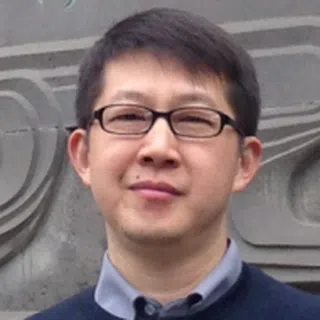John Stuart and Edgar Snow: Two Americans in China
As the PRC celebrates its 70th anniversary, and amid the China-US trade war, Prof Tian Fangmeng remembers two Americans who left their marks on China in the first half of the 20th century. One became the face of American imperialism and the enemy of communism, while the other became a familiar face in the Chinese government's official propaganda. But are they so different?
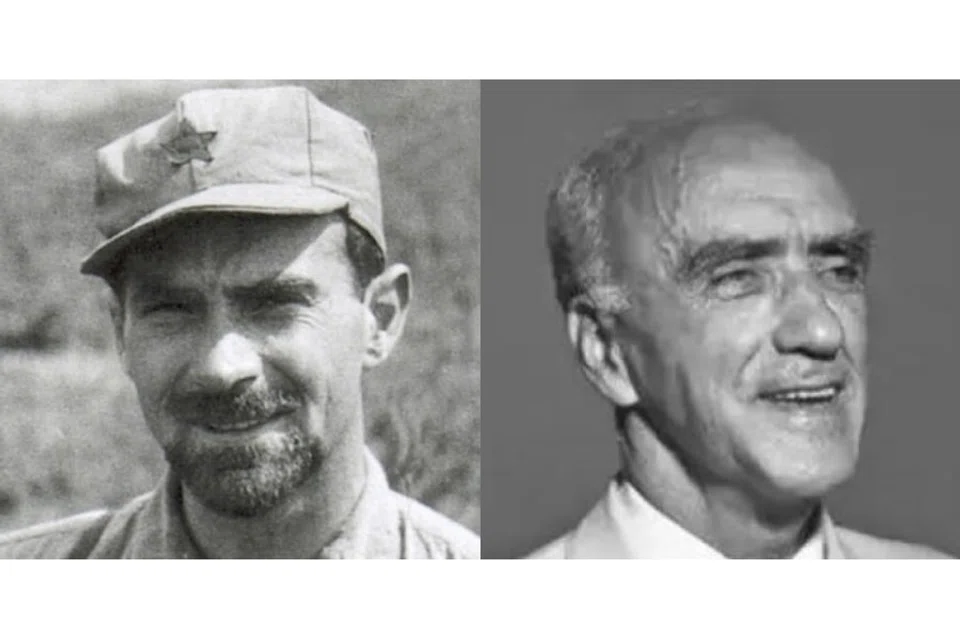
The People's Republic of China celebrated its 70th anniversary this autumn, with a grand military parade in Tiananmen Square on 1 October. In the stands were Chinese from all walks of life, along with a number of China's foreign friends.
(Edgar Snow) likened Lu Xun to Mark Twain and Mao Zedong to Abraham Lincoln, and even dubbed Sun Yat-sen's widow Soong Ching-ling China's "Mrs George Washington"
And China does regularly invite foreign guests to its national day celebrations. Even in 1970, while China was isolated from the rest of the world, American Edgar Snow was there at the national day celebrations, and even had a photograph taken with Chairman Mao.
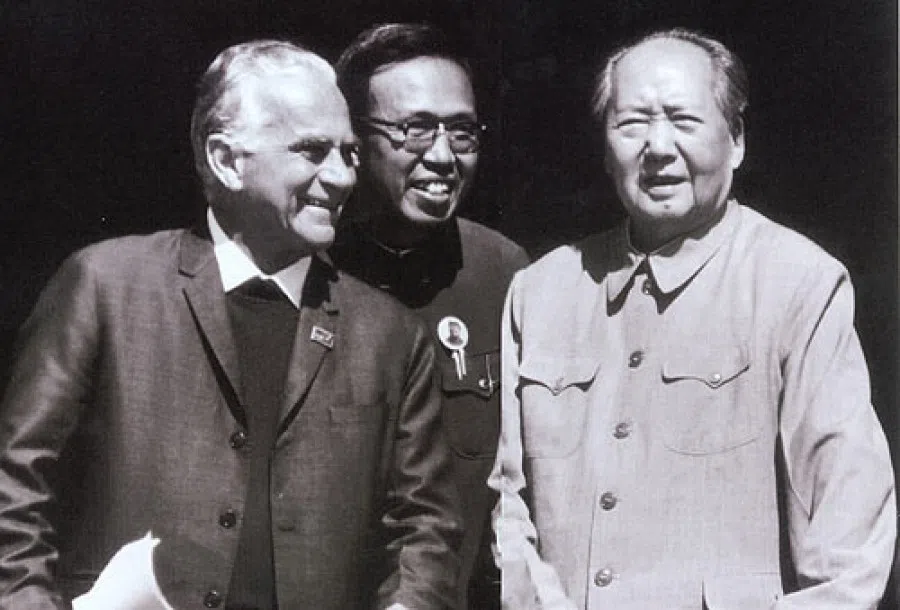
Snow is a familiar face in the Chinese government's official propaganda. Three years ago, there was a TV serial on him, while in August this year, a movie about him The Secret of China was released in China.
After the Red Army ended its Long March in northern Shaanxi, Snow visited Yan'an in 1936, and became the first Western journalist to interview the leaders of the Chinese Communist Party (CCP). Born and bred in Missouri, Snow often viewed the realities of Chinese society from an American perspective. For instance, he likened Lu Xun to Mark Twain and Mao Zedong to Abraham Lincoln, and even dubbed Sun Yat-sen's widow Soong Ching-ling China's "Mrs George Washington".
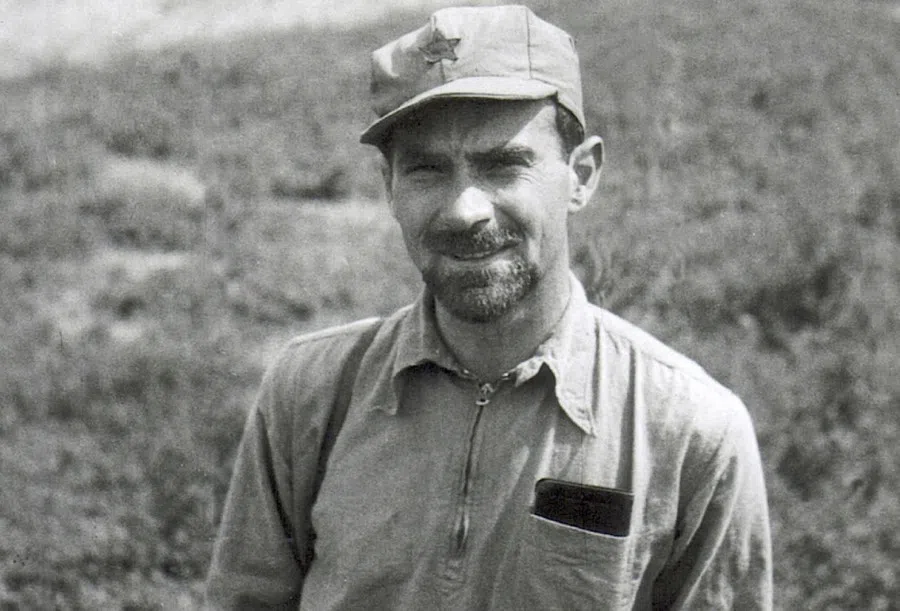
During the years of the Republic of China, the CCP armies were not part of the government military forces. As such, mainstream media both within and outside of China often branded them derisively as chifei (赤匪, red bandits). Based on interviews and observations, Snow wrote his book Red Star Over China, giving the West an account of the CCP and what life in China was like under their governance. Red Star Over China was well received in the English-speaking world and changed the views of American political dignitaries towards China. In fact, it subsequently became a must-read for those looking to study the history of the CCP.
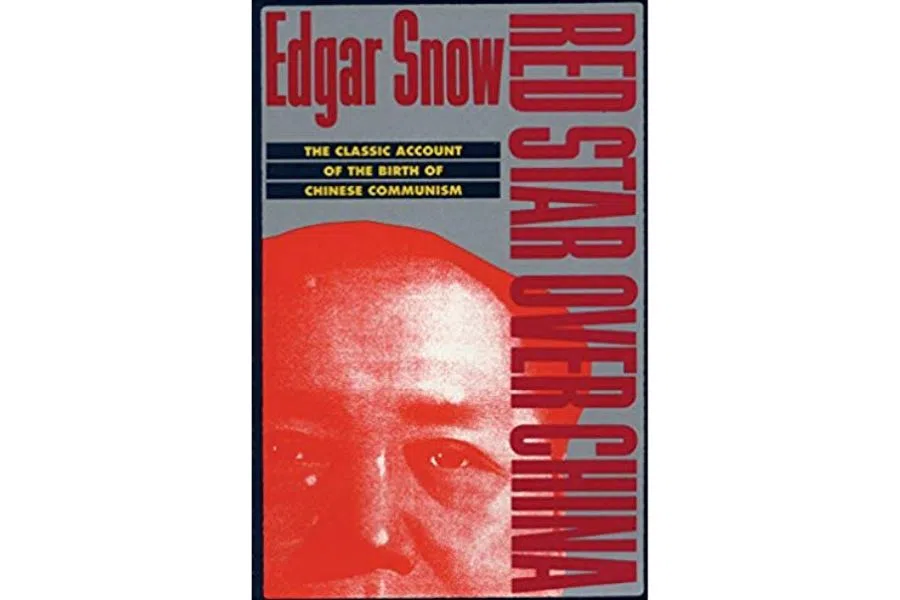
Throughout China's long history, shaping its people's collective memory has been an area of political contention. In the lead-up to China's 70th anniversary, while the official media was focusing on publicity for the celebrations, a group of young liberal intellectuals produced a five-episode documentary series, The Road to Peking (《通往北京的道路》), featuring five Westerners in China, including Sir Robert Hart, an Irishman who served as the Inspector-General of the Imperial Maritime Customs Service, and William Alexander Martin, an American missionary who first introduced the idea of international law to the Chinese. Both of them came to China during the late Qing dynasty and dedicated their lives to modernising this ancient Eastern civilisation.
Stuart became the face of American imperialism and the enemy of communism in the minds of the Chinese people. But the truth is, Stuart devoted his life mainly to missionary and educational work in China.
Among these five, the Chinese people are probably most familiar with John Leighton Stuart, United States ambassador to China in the late 1940s. Before the founding of the People's Republic of China (PRC) in 1949, Chairman Mao Zedong published an article entitled Farewell, John Stuart (《别了,司徒雷登》), announcing the end of diplomatic relations with the United States. From then on, Stuart became the face of American imperialism and the enemy of communism in the minds of the Chinese people. But the truth is, Stuart devoted his life mainly to missionary and educational work in China. In fact, he founded Yenching University, a renowned tertiary institution during the Republic of China years. Yenching was located where Peking University is today, and it nurtured many outstanding talents for China during the 20th century.
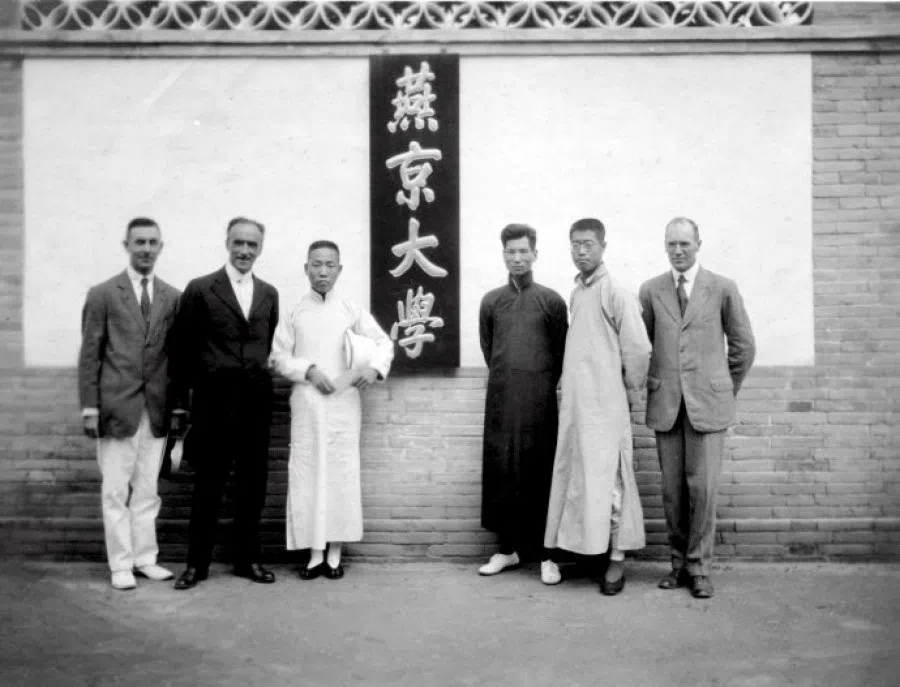
Thanks to the efforts of educational history scholars and liberal-minded writers, Stuart's image in China has improved tremendously in recent years, even though his contributions are not yet formally recognised by the authorities. In the 1950s, the Yenching University was restructured and most of its departments were transferred to Peking University.
As Westerners in China, Stuart and Snow spent their lives bridging the Pacific divide between China and the United States.
This year marks the 100th anniversary of the founding of Yenching University, and some 200 of its alumni - some in their nineties - gathered in the Peking University campus at the end of August for a commemorative event. While Peking University's official website provided some low-profile coverage of the event, there was no mention of Stuart, the first president of Yenching University.
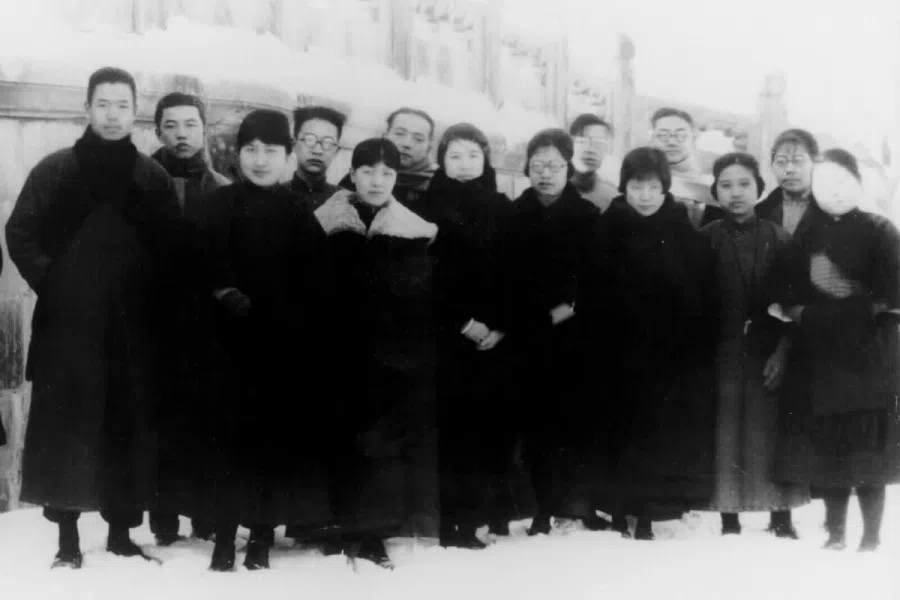
As friend and foe of the CCP respectively, Edgar Snow's public image was the polar opposite of Stuart's. Nonetheless, this did not stop Snow from accepting Stuart's invitation to give a lecture and even to teach journalism at Yenching University before going to Yan'an. And although Yenching University was a Christian institution set up by a Christian organisation based in China, Stuart managed the university with an inclusive mindset, and Snow was allowed to teach there even though he sympathised with the CCP. There was a time when Snow felt that China's hopes rested with the Kuomintang, but his views changed when he saw the party's incompetence and state of decay. Even though Snow's political views subsequently differed from those of Stuart's, both were supportive of less developed countries fighting for equality on the international scene. The two also sympathised with the fledgeling revolutionary forces in China back then and were friendly towards student movements.
As Westerners in China, Stuart and Snow spent their lives bridging the Pacific divide between China and the United States. Stuart persuaded the White House and the US Congress to adopt a friendlier stance towards China, while Snow maintained his close friendships with the CCP leaders. Together, the duo wrote a wonderful chapter in Sino-US relations. Regrettably, not only were their cross-border social networks not used when Sino-US ties turned frosty, they even had to leave their homes because of those connections.
After leaving China in 1949, Stuart lived in the United States until he passed away. In his will, he expressed his wish for his ashes to be buried on the campus of the Peking University, but this did not happen, despite the efforts made. In the end, the executor of Stuart's will had to arrange for Stuart's ashes to be buried in Hangzhou, where he was born. On the other hand, Snow's close ties with the Chinese government resulted in his persecution by right-wing elements in the United States from the 1950s onwards. Snow was accused of being anti-America, which subsequently resulted in him being unable to publish his works. In the end, he was forced to move to Switzerland where he lived until his death. Following this, a part of Snow's ashes was buried in Peking University, something that was denied to Stuart.
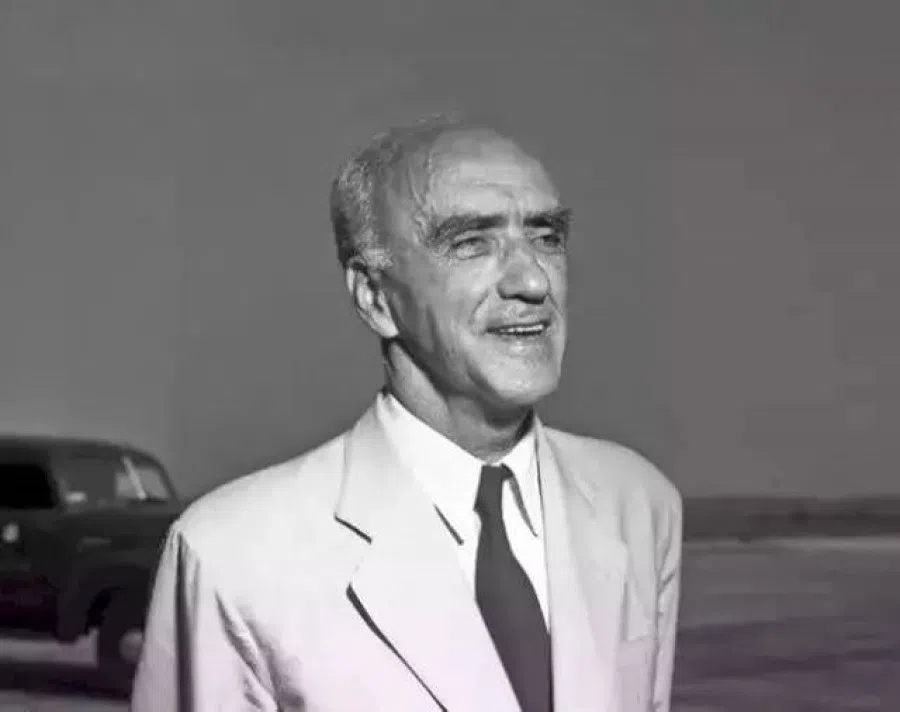
Whether they cooperated with the Kuomintang or the CCP, Westerners who came to China during the Republic of China years all aspired to help build a better modern China. While the Kuomintang granted powers to some of them, the CCP put more value on their contributions to its external publicity. This could well be because the CCP placed a greater emphasis on China's autonomy and independence.
Other than Snow, two female American journalists, Agnes Smedley and Anna Louise Strong, also reported on the communist movement in China. But all of them were considered pro-CCP; in the case of other Westerners who came to China and who played a part in modernising the country, official textbooks tend to highlight their association with foreign powers. It is the non-governmental intellectuals who are more inclined to record and spread the word about their contributions.
The influence that Stuart and Snow have had on China can still be seen today, and there are others like them. In 2016, the political philosopher, Daniel A. Bell, became the Dean of the School of Political Science and Public Administration at Shandong University. In doing so, he became one of the few foreign scholars to take on leadership positions in Chinese academic circles. Recently, the American writer, Peter Hessler, has published a series of non-fictional works comprising stories in contemporary China, evoking memories of Snow's contributions. Westerners continue to play a part in China's development. They have shaped China, and in turn, China has also transformed them.
